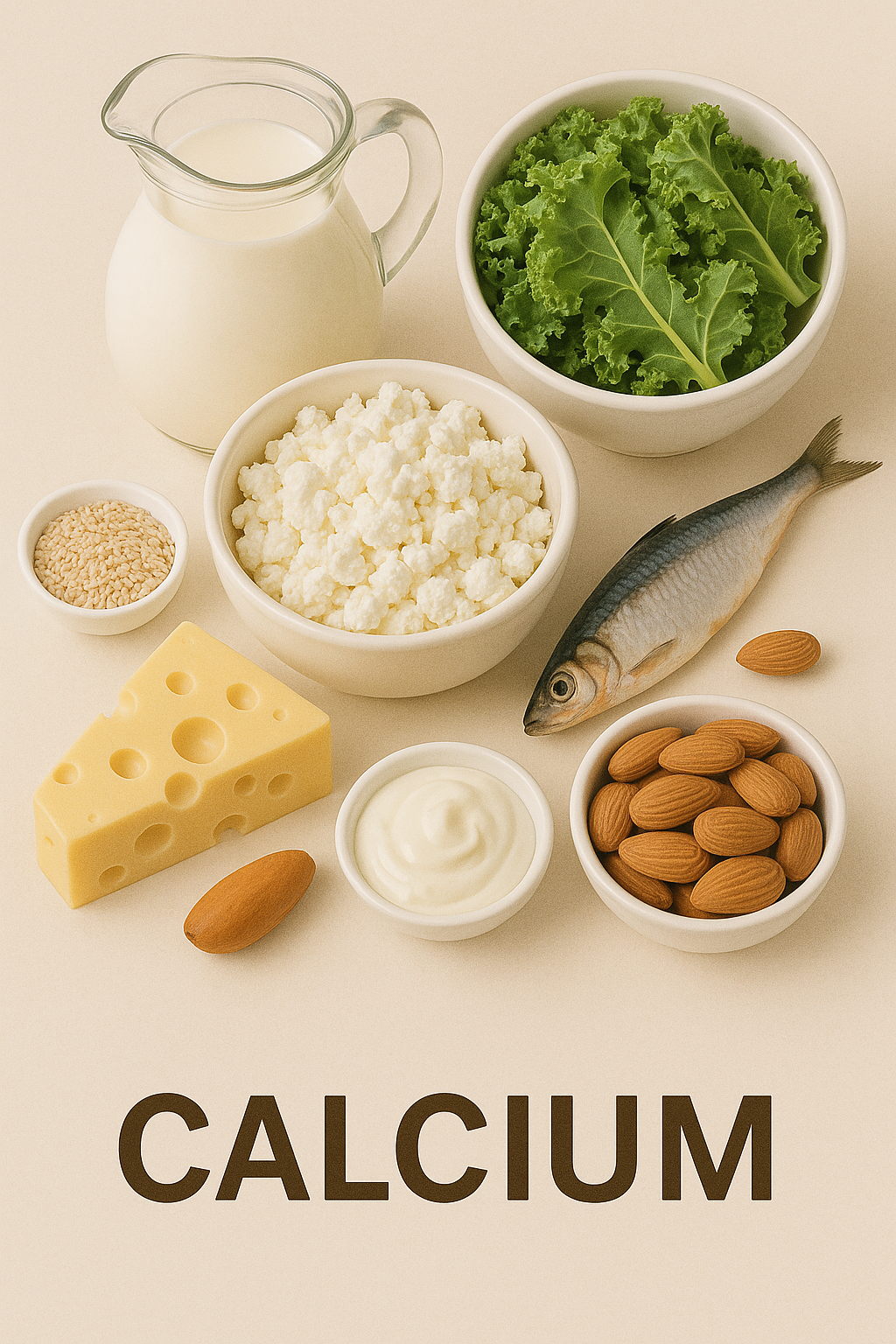
The Vital Role of Calcium in Human Health: Beyond Bone Strength
Share
Calcium is widely recognized as a cornerstone of skeletal health, but its significance extends far beyond bones. This essential mineral plays a pivotal role in various physiological processes, including muscle function, nerve transmission, and cardiovascular health.
🦴 Calcium and Bone Health
Approximately 99% of the body's calcium is stored in bones and teeth, providing structural integrity and strength. Adequate calcium intake is crucial during childhood and adolescence to achieve optimal peak bone mass, which can help reduce the risk of osteoporosis later in life. A systematic review and meta-analysis indicated that calcium supplementation in individuals under 35 years old significantly improved bone mineral density, particularly in the femoral neck and total body.
❤️ Cardiovascular Benefits
Calcium contributes to cardiovascular health by aiding in the regulation of blood pressure. Studies have shown that appropriate calcium intake is associated with lower blood pressure, especially among young individuals . The mechanism involves calcium's role in vascular smooth muscle function, which influences vasodilation and vasoconstriction.
🤰 Maternal and Fetal Health
During pregnancy, calcium plays a critical role in fetal skeletal development and maternal health. Adequate calcium intake has been linked to a reduced risk of hypertensive disorders of pregnancy, such as preeclampsia . Ensuring sufficient calcium levels during pregnancy is essential for both maternal well-being and optimal fetal development.
🧠 Neuromuscular Function
Calcium is integral to neuromuscular function, facilitating nerve impulse transmission and muscle contraction. It acts as a signaling molecule in nerve cells and is essential for the release of neurotransmitters. In muscles, calcium enables the interaction between actin and myosin, leading to muscle contraction. Disruptions in calcium homeostasis can result in muscle cramps, spasms, or even cardiac arrhythmias.
🧂 Recommended Intake and Sources
The recommended daily calcium intake varies by age and sex. For adults aged 19–50 years, the recommended dietary allowance (RDA) is 1,000 mg per day, increasing to 1,200 mg for women over 50 and men over 70 . Calcium-rich foods include dairy products (milk, cheese, yogurt), leafy green vegetables (kale, broccoli), fortified foods (orange juice, cereals), and fish with edible bones (sardines, salmon).
⚠️ Considerations for Supplementation
While dietary sources are preferred, supplements may be necessary for individuals who cannot meet their calcium needs through diet alone. However, excessive calcium supplementation has been associated with potential risks, such as kidney stones and cardiovascular issues . It's essential to consult healthcare providers before initiating supplementation to determine appropriate dosage and necessity.
